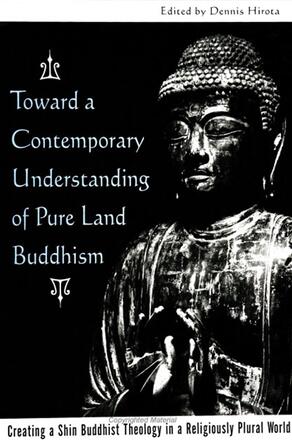
Toward a Contemporary Understanding of Pure Land Buddhism
Creating a Shin Buddhist Theology in a Religiously Plural World
Alternative formats available from:
Explores the potential significance of Japanese Pure Land Buddhist Thought in the contemporary world, and provides a new model of interreligious dialogue as Buddhist thinkers engage with Christian theologians concerned with the present-day significance of their own tradition.
Description
2000CHOICE Outstanding Academic Title
Toward a Contemporary Understanding of Pure Land Buddhism offers proposals for creatively reinterpreting the Pure Land path. Japanese Pure Land thought brought about a major development in Buddhist tradition by evolving a path to enlightenment that is pursued while carrying on life in society. It is rooted in the Mahayana ideal of compassion and in the bodhisattva, or being of wisdom, who vows to ferry all living things to the other shore of awakening.
In this book, three Buddhist scholars utilize hermeneutic thought, process theology, and the mandala contemplation of Buddhism to address issues of modernity and religious values in the world today. In addition, the work proceeds to offer a new model of interreligious dialogue. Gordon D. Kaufman and John B. Cobb, Jr. reflect critically on the Buddhist proposals, drawing on their long experience as religious philosophers facing questions concerning the contemporary applicability of Christian thought.
Contributors include John B. Cobb, Jr. , Dennis Hirota, Gordon D. Kaufman, Musashi Tachikawa, and John S. Yokota.
Dennis Hirota is Professor of Asian Studies at Chikushi Jogakuen University, Dazaifu, Japan. He is the head translator of The Collected Works of Shinran and has published extensively on Pure Land Buddhist thought and Buddhist aesthetics in both English and Japanese. His works include Plain Words on the Pure Land Way: Sayings of the Wandering Monks of Medieval Japan; Shinran: An Introduction to His Thought; No Abode: The Record of Ippen; and Wind in the Pines: Classic Writings of the Way of Tea as a Buddhist Path.
Reviews
"Pure Land Buddhism is well-poised for dialogue in relation to postmodern issues. The interdisciplinary and cross-religious discussions represented in this book are a fine start. " — Thomas P. Kasulis, Ohio State University
"This book goes beyond any Japanese works in its efforts to make Pure Land Buddhism meaningful for contemporary people, whether East or West. " — Taitetsu Unno, Smith College